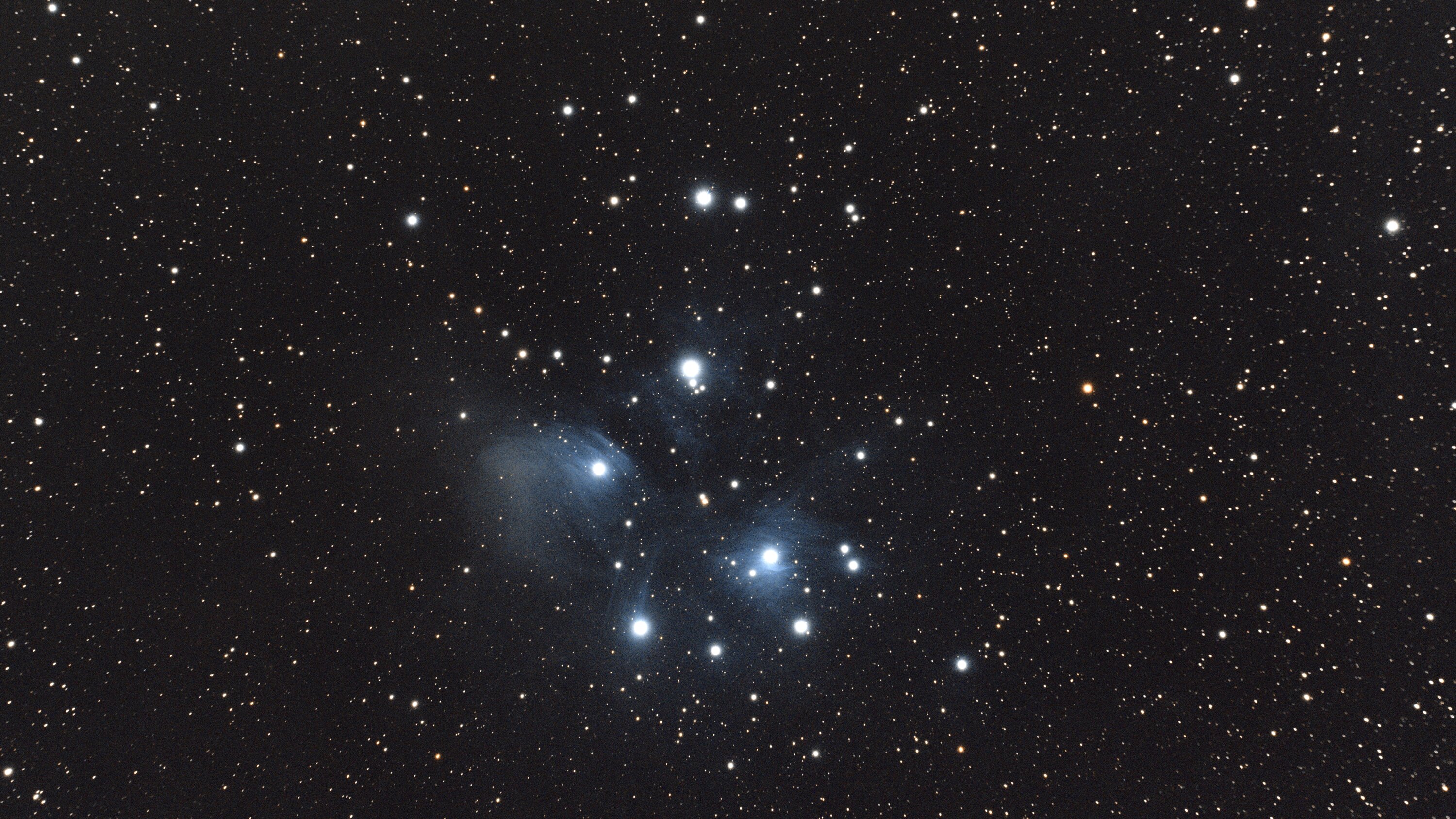Home / Science / Pleiades Star Cluster Harbors Over 3,000 'Lost Sisters', Astronomers Reveal
Pleiades Star Cluster Harbors Over 3,000 'Lost Sisters', Astronomers Reveal
12 Nov
Summary
- Astronomers identified over 3,000 stars associated with the Pleiades cluster
- The Pleiades is a larger, more diffuse network of stars than previously known
- Studying the Pleiades may help understand the origins of our own solar system

According to a study published on November 9, 2025, astronomers have discovered that the Pleiades star cluster, a prominent feature in the night sky, is far more expansive than previously known. The researchers have identified over 3,000 stars associated with the Pleiades, which they have named the 'Greater Pleiades Complex'.
The Pleiades, also known as the Seven Sisters, is a star cluster located 445 light-years from Earth. While only a handful of stars in the cluster can be seen with the naked eye, the new findings suggest that the Pleiades is part of a larger, more diffuse network of stars that would span the entirety of the night sky if they were all visible.
The study, led by Andrew Boyle, a graduate student at the University of North Carolina at Chapel Hill, used data from NASA's Transiting Exoplanet Survey Satellite and the European Space Agency's Gaia satellite to trace the motions and chemical compositions of these 'lost sisters' of the Pleiades. The researchers believe that these stars were once part of the same giant cloud of gas and dust that gave birth to the Pleiades cluster, but have since scattered throughout the galaxy.
Understanding the origins of the Pleiades and its associated stars could provide valuable insights into the birth and evolution of our own solar system. As astrophysicist Luke Bouma of Carnegie Science in California explains, "Understanding the origins of our own solar system are part of this story."
The discovery of the Greater Pleiades Complex is a testament to the power of modern astronomy and the ongoing efforts to unravel the mysteries of the universe. As Andrew Boyle says, "If I could actually see everything that's there, it'd just be this arc of stars that would stretch from horizon to horizon. It shows that there's a lot more out there that we can find."




